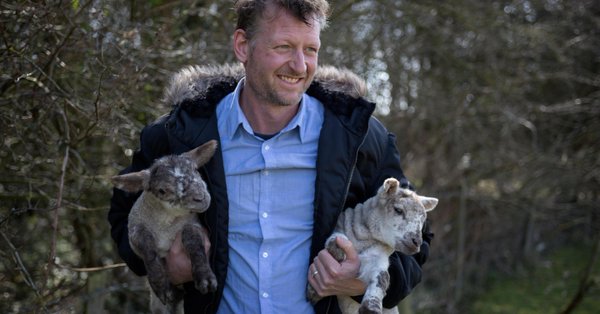Though Mark Lynas is a friend, I got mad when I started reading the first draft of his new book, “Seeds of Science: Why We Got It So Wrong on GMOs.” Oh, so you’re responsible for this misery, I recall commenting on the Word doc he’d sent. At the time, I was enroute to Hawaii, where I’d long been in the trenches of a bitter battle that still rages there — and in too many places — over the cultivation of GMO crops.
It was hard for me to reconcile my fondness for Mark with the knowledge that he had been ripping up GM research plants, publicizing anti-GMO demonstrations, spreading false information — in short, engaging in the sort of activities that I seek to counter in most of my working hours.
But Mark isn’t the same man now as he was then. Through introspection and honest self-reflection, he not only changed his mind about GMOs, he publicly apologized for his early misguided zealotry. In the process, he became the Mark I know: a humanitarian and environmentalist who expanded his world view to include GMOs.

In this book, Mark explores his journey from anti to advocate, sharing his inner evolutionary process as he delves into the science, history, corporate missteps, potential benefits, and conflict activism that comprise one of the most contentious debates of our time.
It’s rich reading, driven by lively, engaging prose and mined with numerous nuggets of little known facts, all framed within the context of complex and fraught human relationships. The book also valuable provides perspective on the issue, whether it’s the Agent Orange origin of hatred toward Monsanto or the role that western elitism plays in depriving African children of food.
Mark identifies people and choices — on both sides of the GMO debate — where it’s suitable to lay blame for the conflagration that has engulfed a plant breeding technique. Multinational agrochemical companies and activists botched the roll out and response, respectively, and quickly cornered themselves in a hunker-down, no-quarter-given mindset. And the firestorm’s been raging ever since.
All of that is fairly well known, though Mark shares ample anecdotes, many of them personal, that make the subject matter feel fresh. But especially interesting— perhaps because of its political pertinence — was Mark’s analysis of the dynamics that prompt people to adopt a rigid ideology, embrace a belief system that runs counter to scientific evidence, or even their own best interests.
Mark’s book offers hope that reasonable people can engage in the thoughtful, reasoned reflection that results in altering deeply held views and beliefs — even though, as he writes, “at a very basic level, no one wants to be wrong.” But as Mark makes clear, this transformation doesn’t typically occur because one is plied with evidence. Instead, Mark tells us how reading the words of social psychologist Jonathan Haidt — “Conscious reasoning is carried out largely for the purpose of persuasion, rather than discovery” — triggered him to recognize how group think and tribal identity exert a far greater power than facts on our social species.
In his own case, as Mark writes, his shifting stance on GMOs wasn’t due so much to him changing his mind as changing his tribe— from radical environmentalist to writer concerned about his own credibility within the scientific community he covers.
GMOs remain an embattled topic, but as Mark writes, we need to move beyond “narrow heroes and villains caricatures.” His story helps us to remember this is a social issue, as much as a technological one, because it speaks to humanity’s greatest hopes — and fears.
In the book, Mark quotes his friend and one-time nemesis, the pro-Luddite Jim Thomas, who asked: “What if we could drag emerging technologies into a modern court of public deliberation and democratic oversight? What might that look like?”
It’s a good question, and one we embrace at the Alliance for Science. We want these discussions to occur. We are training champions, like our Global Leadership Fellows, to ensure that people who know the science, people who can advocate for evidence-based decisions and the basic human right to access innovation, are at the table and in front of the microphones when these conservations take plac.
That’s the role that Mark has played, too, in releasing a book never stints on the science, even as he explores such purely human emotions as feeling hurt when old friends denounced him as a liar after publicly changing his anti-GMO views, or the moral convictions that prompt many to reject the technology as “playing God.”
Mark’s book has come at an opportune time, when we are seeing a shift around biotech due to the emergence of new breeding techniques, signs of a more favorable regulatory environment, consumer confusion around agricultural production, and food label fatigue. As a charismatic personality with a compelling, science-based story to tell, Mark can effectively speak to that massive middle ground of people with questions, but no fixed opinion on the topic. Through the thoughtful, reasoned, humble approach that he took in writing the book, and now promoting it, he is helping people understand both sides of this contentious debate. “Seeds of Science” gives people reason to reconsider their own beliefs — their own tribal membership — and take another look at this long-demonized technology.
